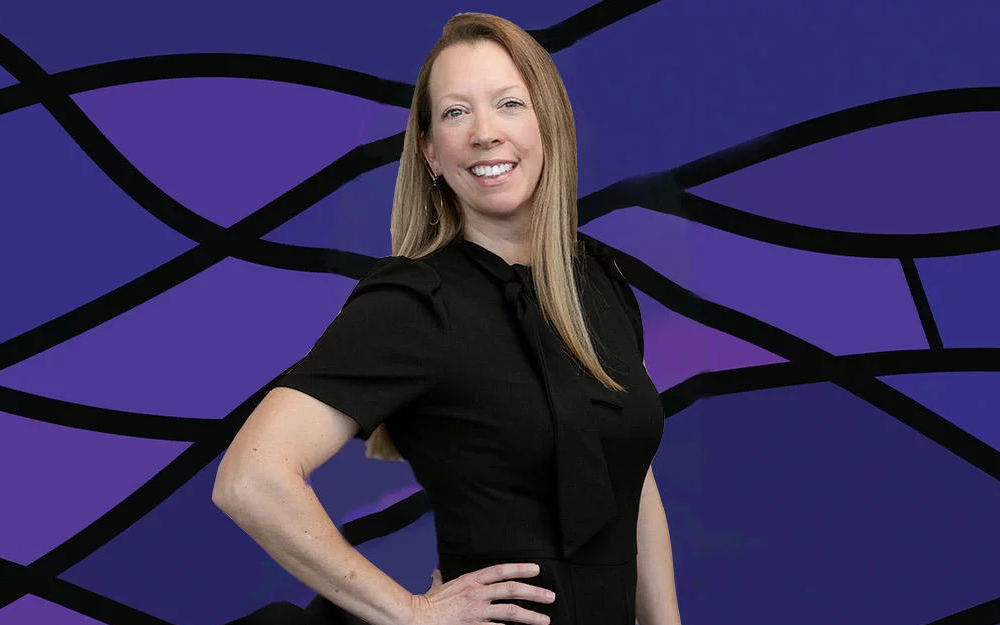When Menomonee Falls mother of two, Megan Haensgen, initially mistook her symptoms for a common hemorrhoid, her journey to treatment began. Her primary care physician, Dr. Ana Caban Cardona, promptly referred her to Dr. Kirk Ludwig, a colorectal surgeon at Medical College of Wisconsin. Following thorough examination, Dr. Ludwig diagnosed Megan with stage II squamous cell carcinoma, the most prevalent form of anal cancer.
Opening up about her experience, Megan underscores the importance of early detection in successfully combating the disease. Urging awareness and vigilance, she emphasizes the significance of accessing help when needed.
Most anal cancers stem from the human papillomavirus (HPV), famously linked to cervical cancer. Dr. James Thomas, a medical oncologist, highlights the critical role of HPV vaccination in preventing various cancers, including anal cancer. Emphasizing prevention as a paramount strategy, Dr. Thomas underscores the transformative potential of the HPV vaccine in thwarting cancer development.
Specialized Care Strategy for Anal Cancer Management
A collaborative effort between the Froedtert & MCW Colorectal Cancer Program specialists and other experts from the Froedtert & MCW Cancer Network culminated in the development of Megan’s individualized treatment plan.
Her case underwent meticulous review at a weekly cancer conference dedicated to disease-specific discussions. A collective of experts from various fields deliberated on the best course of action to ensure Megan’s optimal outcome.
Megan’s tailored regimen comprised targeted radiation therapy, succeeded by chemotherapy. Given the complexities associated with surgery for most anal cancers, the preference leaned towards alternative treatments to avoid extensive procedures and potential permanent alterations like ostomy.
Dr. Beth Erickson, a radiation oncologist and MCW faculty member, played a significant role in Megan’s care. Emphasizing the importance of expertise in administering the latest anal cancer treatments, Dr. Erickson underscored the intensive nature of managing the disease and its associated effects.
Throughout her treatment, Megan encountered side effects such as sensitive skin due to radiation therapy, prompting Dr. Erickson’s team to implement a customized regimen for skin healing and comfort. Additionally, managing early menopausal symptoms became a focus, addressed through hormonal therapy prescribed by Megan’s gynecologist.
Despite the challenges, Megan’s perseverance paid off, resulting in her being classified as cured. Ongoing surveillance by Froedtert & MCW colorectal cancer specialists, employing imaging scans and precise examination techniques like anoscopes, will ensure her continued well-being.
Promoting Awareness and Action for Anal Cancer: Overcoming Stigma
“Discussing risk factors for anal cancer with your healthcare provider is crucial,” advised Dr. Erickson, emphasizing the importance of proactive screening.
Screening typically involves a manual examination to detect any abnormalities or signs of concern. Individuals at high risk or with potential HPV exposure should engage their doctor in discussions about ongoing monitoring. For those deemed high-risk, the specialized monitoring services offered at the Froedtert & MCW Anal Dysplasia Clinic can play a pivotal role in early detection and treatment.
Beginning her advocacy journey, Megan volunteers within a peer-to-peer program, extending support and guidance to those grappling with a diagnosis. Dr. Erickson emphasizes the significance of patient connections, facilitating smoother paths for individuals navigating through the disease and its treatments.
Megan and her dedicated care team aspire to inspire others to seek medical attention upon noticing concerning symptoms like anal lumps or bleeding, promoting a message of empowerment over embarrassment.
“There’s no need for shame or embarrassment in the face of this diagnosis,” assures Dr. Ludwig, echoing the sentiment that seeking help and support is a brave and necessary step towards healing and recovery.
This article was rewritten from the following
https://www.froedtert.com/stories/removing-stigma-around-anal-cancer

